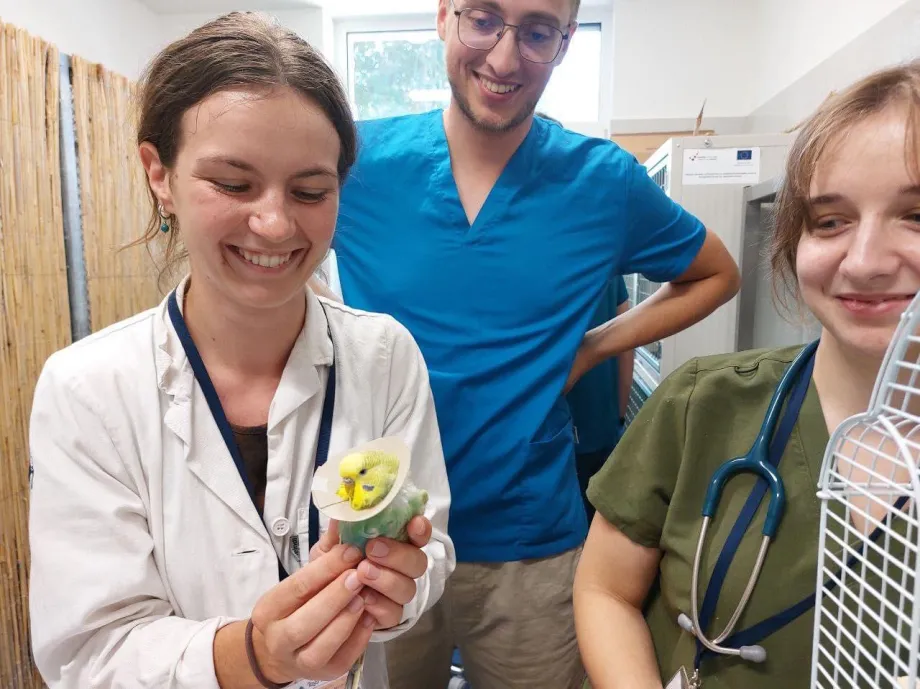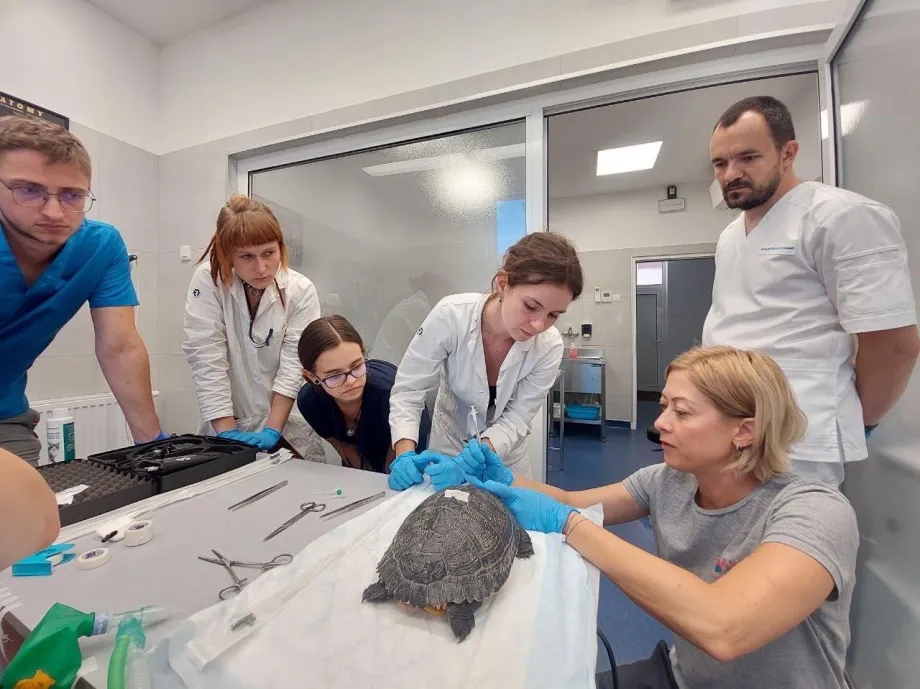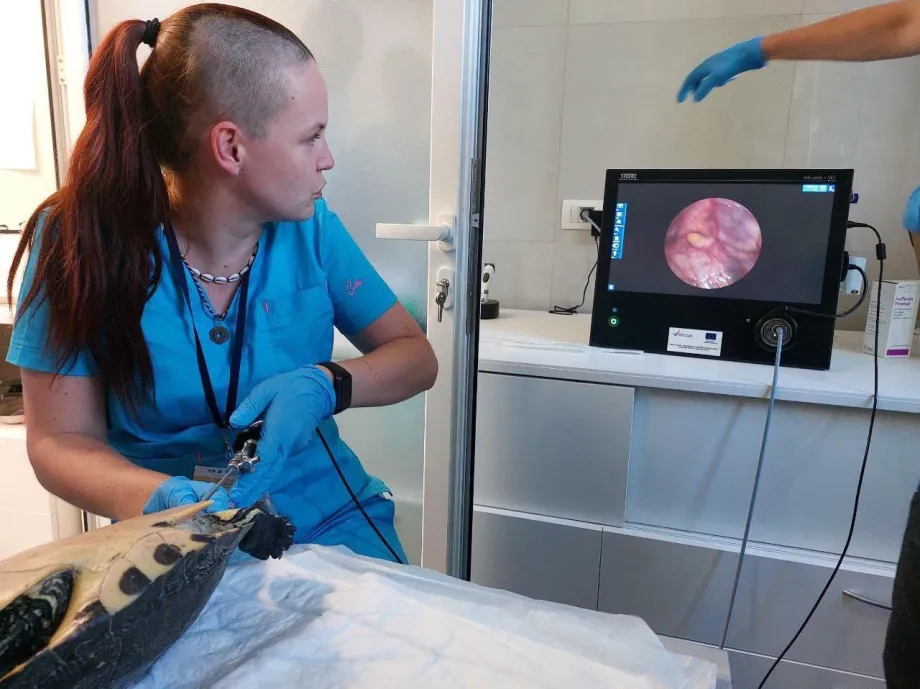Experiencing a CEEPUS Mobility in Croatia: Summer School of Exotic and Wild Animal Medicine at the Veterinary Faculty in Zagreb
The Faculty of Veterinary Medicine in Zagreb hosted an international summer school dedicated to exotic and wild animals. The school was organized in July 2025 and students from Austria, Bosnia and Herzegovina, Poland, Slovakia, Slovenia, Serbia, and North Macedonia participated.

In this hands-on-oriented course, participants gained theoretical and practical knowledge about handling, manipulation, clinical procedures, and treatment of exotic and wild birds, reptiles, and small mammals. The programme was carefully structured so that the scholarship holders could participate in expert lectures and practice in the veterinary hospital.
Vanessa G. from Slovakia particularly enjoyed the practical work during the programme: The practical part was the best for me, since we could try to take a blood sample, give medicine, try good handling of the animals, take swabs etc. - on different species. I am very glad for this experience, my favourite one was endoscopy of turtle!
David P. from Serbia was also able to assist in real cases in clinical rotations at the university's veterinary hospital, participating in small animal surgery, diagnostic imaging and internal medicine: This direct involvement in patient care was incredibly valuable and gave me practical skills that go beyond what I had experienced at my home university.
Students were able to actively participate in all procedures that were first explained during the theoretical part of the programme: This combination of theory and practice helps to consolidate our knowledge in a meaningful and lasting way. Personally, I had the opportunity to perform an ultrasound examination, which was a valuable and memorable experience for me. It is not often that students are given such a chance so early in a program, and I truly appreciate this hands-on approach, Weronika K. from Poland points out.
All the practical work was done in modern facilities, as Weronika describes: The space is well-equipped, modern, and impeccably maintained. The attention to cleanliness and organization adds to the overall positive learning atmosphere.

Apart from the practice, expert lectures led by specialists in the fields of zoo, exotic, and wildlife medicine garnered a lot of interest and many positive experiences from students and teachers.
Ana P., a teacher from Belgrade, points out the collaborative environment of the lectures: The summer school brought together experts from several institutions, encouraging cross-cultural exchange of veterinary education practices. I found it immensely valuable to discuss approaches to teaching exotics medicine with colleagues from other veterinary schools in the region, sharing ideas on curriculum design, clinical training, and research priorities.
She continues: The students were enthusiastic and asked insightful questions about diagnostic approaches, treatment options, and preventive nutrition. It was deeply rewarding to see their genuine interest in improving the welfare of this often-neglected patient group.
For Lina Sophia L. from Austria, the mobility in Zagreb was an exciting and multifaceted opportunity to learn about and work with different kinds of exotic animals such as small mammals, birds, reptiles and many other species, while developing a further base for collaboration of veterinarians all across Europe and connect to other universities.
Mobilities are also a time to connect and mingle so the students visited the Zagreb ZOO where they shared many behind the scenes experiences. Organizers also made sure the activities were clearly structured so the participants can have time to relax and absorb everything they learned and they planned a get-together with BBQ as a closure ceremony.
The combination of expert lectures and valuable practical work left a lasting impression on the participants. Lina shares her message to future participants: I would absolutely recommend it to any student interested in exotic and zoo animal medicine. We were able to learn, see and practice so many things in a relaxed and respectful collegial setting.

What made the experience even more enriching was the teaching style in Zagreb—professors were very approachable and encouraged us to actively participate, ask questions, and discuss differential diagnoses as a team. The international environment created by CEEPUS also allowed me to exchange knowledge and techniques with students from other veterinary faculties in Central Europe, which broadened my clinical perspective. Overall, the combination of practical learning, professional mentorship, and international academic exchange made this one of the most rewarding parts of my veterinary education so far.
The organization of the exchange, the professionalism and approachability of the lecturers, the balance between theory and practice, and the opportunity to gain hands-on experience in such a well-prepared environment all contribute to a highly positive impression of the program
The summer school is a continuation of great work in the CEEPUS network VetNEST (Veterinary Network for Student and Staff Transfer) – Extended.





